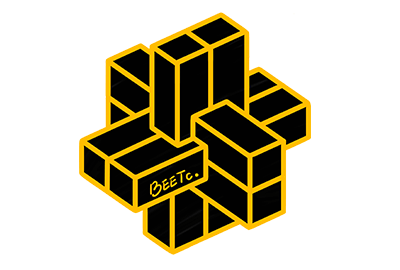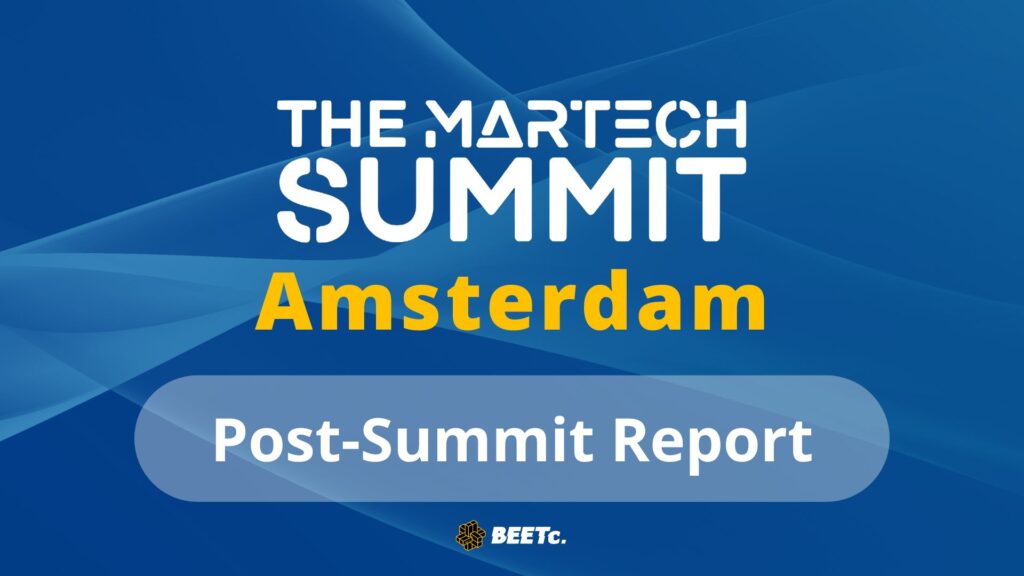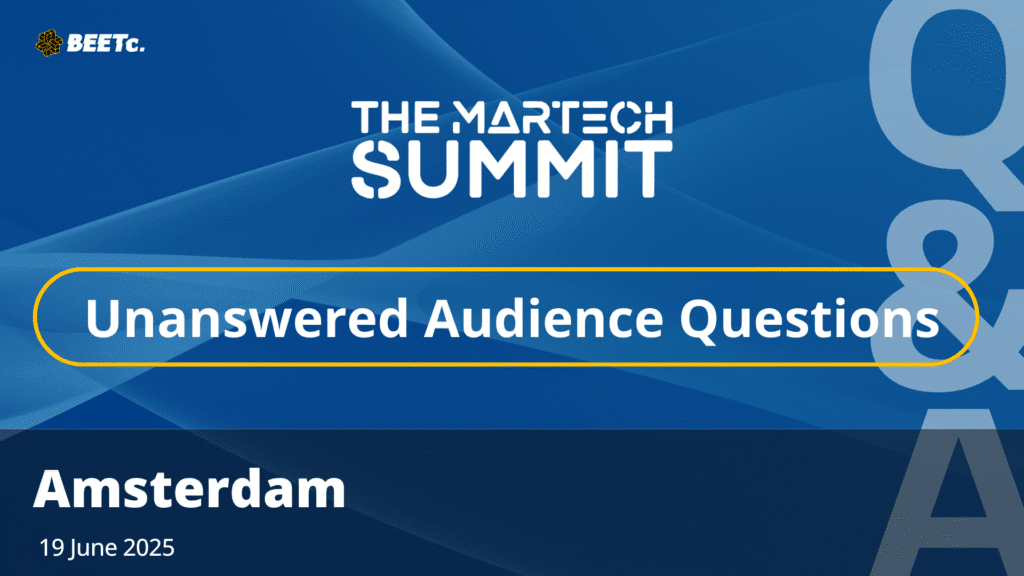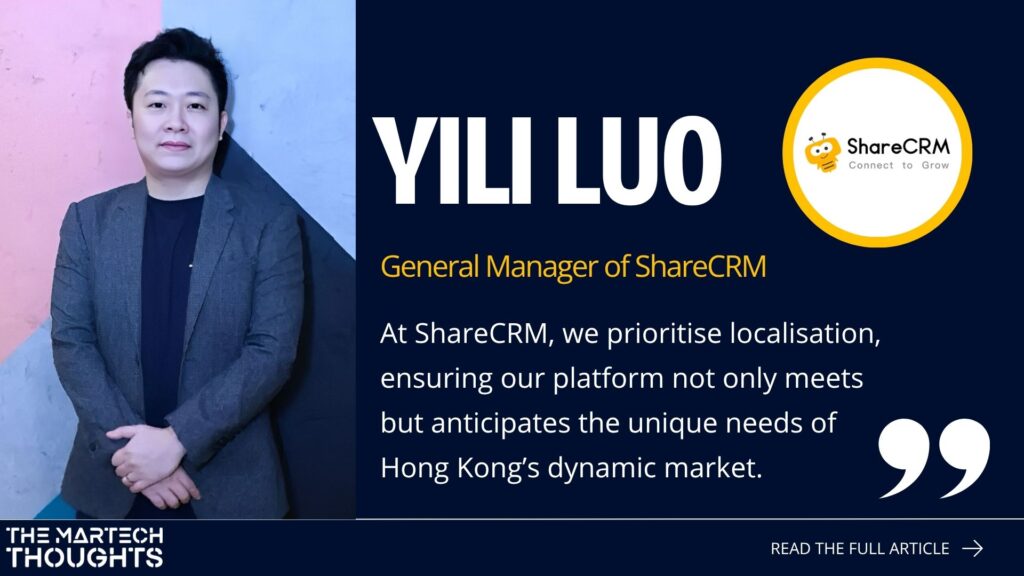How has your organisation / team dealt with the challenge of the marketing industry and wider digital world evolving at such a fast pace?
Our CEO and executive committee are aware that technology is the future for the organisation and our board embrace it. We’ve seen some changes in our board dynamic with new board members coming in with significant digital experience, who have seen the disruptive influences of digital in other more mature environments and want to be a part of the self-disruption here in Orica.
On a more tactical level, we are:
1. Transforming our commercial approaches and offers, from being just a supplier of traditional inputs and services to a partner of outcomes enabled by digital technologies. Sharing and guaranteeing value with customers and selling outcomes focussed solutions by combining our traditional market leading products, our global technical expertise and intelligent physical and digital platforms to deliver what the customer needs, when they need it most.
2. Executing and embedding regular updates to Orica’s systems to ensure internal and external digital platforms provide customers and employees with an ideal experience in consuming information and real-time decision-making.
3. Employing the right talent, to:
– support the business and functions in leveraging the rapidly evolving digital world of technologies and tool;
– generate effective and engaging campaigns and content, delivered in real-time to the right audiences and stakeholders.
4. Continually investing in educating the team and organisation on digital technology and marketing and offers, allowing us to harness the power of technology, open new channels from in house and to expand our network of experts across the organisation.
5. Partnering with the right suppliers that understand and utilise the breakthrough technologies to deliver optimal customer experiences and fill bodies of knowledge we don’t necessarily have in-house due to niche or rapidly evolving dynamics.
Currently, what are you primarily looking for in your digital marketing efforts? Awareness or engagement? Why?
Both, depending on where our customers and offers sit in their lifecycles. This will determine the execution, channels and targeting required.
Engagement, however, is critical to ensuring we are delivering the right content at the right times and building long term digital relationships with our stakeholders. Having been in the business for over 140 years is a huge advantage, providing us a solid platform to look for ways to better engage our customers and key stakeholders in our journey of innovation and technology to bring cutting-edge solutions that seek to not just improve the mining landscape but to also introduce change for the greater good of the business and industry.
It is critical for any business to constantly look towards newer and better ways of operating to ensure mutual success with our customers and partners. Digital marketing tools are effective in helping us shape the dialogue and change the approach and thinking towards conventional methods in the mining industry.
What is your key takeaway piece of advice that you would give when speaking to others on how to evaluate and select a MarTech stack?
An effective MarTech stack allows us to identify, execute, analyse and improve our marketing and offers across the customer lifecycle. With that in mind, the selection should ideally support the business in improving collaboration, enhancing the ability to measure the impact of marketing activities and engage customers in more effective and innovative ways. Most importantly, the selection should be easy to use and implement across the organisation to encourage usage and maximise benefits of the stack.
How did your MarTech journey begin? Please let us know your top 3 findings and discoveries.
My MarTech journey started in marketing and procurement, and then progressed into business technology (traditional IT) and more recently the customer technology (OT) and the convergence of all three areas to develop new offers and solutions for customers.
At Orica, we are constantly transforming through technology to make mining safer and more efficient for our customers and the industry. Having a sound MarTech strategy is key to supporting this vision.
My top three findings and discoveries:
- Privacy and security cannot be sacrificed (Trust is a must)
- User experience led, every time (right message and information, right time, right place)
- System performance can bring down everything (Scalable, Robust, International)
For you and your team, which is currently recognised as the larger challenge – MarTech Integration or MarTech Strategy?
MarTech integration is our larger challenge. Seamless integrations and hand-offs of data and experiences will allow us to be more efficient and effective in executing solutions. It will also allow us to be more intelligent in our execution, resulting in improved customer experiences and satisfaction overall – ultimately allowing us to grow share of wallet and loyalty.
Have you mainly chosen to adopt established MarTech or have you also looked into the emerging opportunities? Which?
As you can imagine we are quite a conservative industry and organisation due to the nature of our offering, I would say we tend to lean towards established MarTech solutions but this is starting to shift as the needs of our customers and the industry shift rapidly and the ecosystem becomes more open.
Which MarTech brands have you found have / are close to best meeting your expectations when it comes to customer experience? Let us know of any brands which have exceeded expectations.
Globally, in the IT/OT space the big three have to be:
- Amazon
- Microsoft
More locally in Singapore, Lazada (Alibaba) wins my business and when we think more about social marketing (both personal and commercial), LinkedIn still reigns supreme.
What do you predict as being the top MarTech trends for MarTech in 2020?
1. Greater resistance against privacy and security concerns
Customers are now aware of how valuable their personal information is to organisations and are demanding more control over what is held and how it is used. There is also an increased risk profile on organisations associated with personal information being stored, alongside the introduction of GDPR type laws and increased cyber security threats to MarTech.
2. Virtual and Augmented Reality
The use of Virtual Reality (VR) in customer experience will continue to grow, but Augmented Reality (AR) will surpass VR due to its multisensory nature and providing a layer on top of everyday reality.
3. Mashup of business systems (IT) and customer systems (OT)
In the B2B space we will see a deeper convergence and integration of customer systems and supplier systems. Sharing data and insights to deliver richer, more powerful decisions and experiences, as well as deeper level of loyalty and engagement.
4. Automation and AI combine to create smoother multi-channel experiences
In the MarTech space we will continue to see automation take over the decision making and execution of processes, but these will begin to be truly driven by AI and machine learning and will self-diagnose and self-improve to deliver the optimal experience no matter the time or place.













